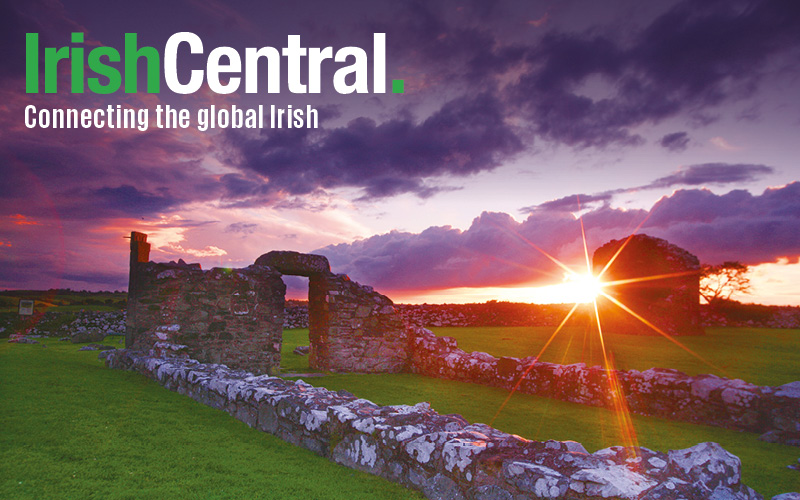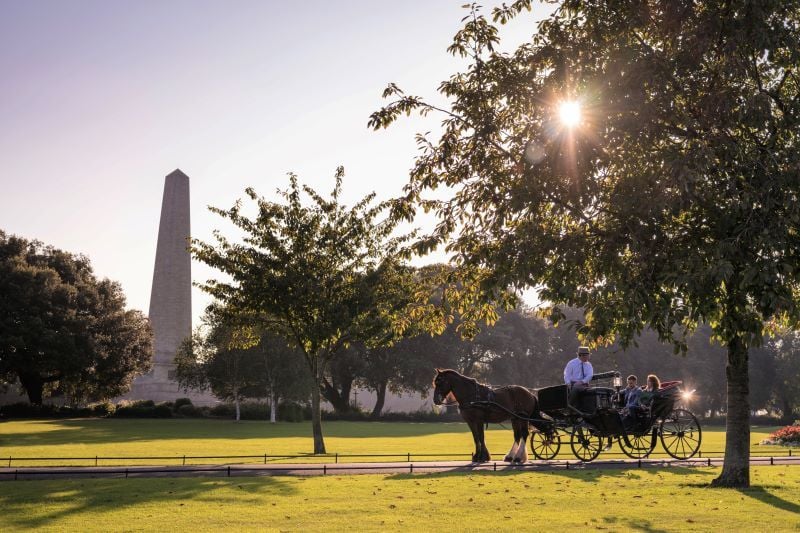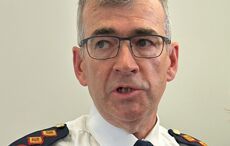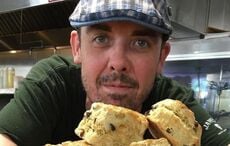Donal Og Cusack is an Irish hurling legend and also the country’s first openly gay top class sportsman. He’s been a member of the Cork senior inter-county hurling team since 1999 and -- both friends and foes agree -- he’s a force to be reckoned with.
The morning of our interview last week in New York – he was here as part of the new Gaelic Players Association (GPA) initiative to drum up support for the group -- he arrives in the foyer of the Roosevelt Hotel just steps from Grand Central Station looking none the worse from a late night at the New York Athletic Club, where the GPA highlighted the way the GAA fosters sport and community in Ireland.
It’s my first time meeting him and I am not prepared for the hand shake, which is one of the strongest I have ever encountered and which, momentarily, makes me feel like dropping to my knees in surrender.
The message is unmistakable -- Cusack is one of those rare Irishmen who tells you directly to your face exactly what he is thinking and feeling. You can’t help but warm to him instantly.
In person he’s unfailingly polite, clearly spoken with a distinct Cork accent, and he’s here on business so he gives you a quick, efficient update on the purpose of the trip.
“The purpose of our trip to spread awareness here about what the inter-county game is about and what the contribution to Ireland of the inter-county player is,” Cusack tells the Irish Voice in his matter of fact manner. “We’ve set up an advisory group to develop a funding stream for our organization, which will put in place structures to support our players.
“We believe strongly that there should be an organization that is watching out for the welfare of those players and who will aid their journey in any way possible, giving them every opportunity to fulfill their potential not only as sportsmen but as people.”
It’s a new and comprehensive funding pitch, in other words, but it’s far more than just hitting up American bigwigs to fund Irish sports. The GAA means something profound to the Irish people, at home and abroad, something that you simply can’t put a price on. So the GPA isn’t looking for handouts, and it’s not in New York to hijack the GAA structure that already exists here. Instead they’re simply creating a new and comprehensive structure to support their players at every level.
“The GAA is a special organization and we’re all GAA men,” says Cusack. “But the inter-county game now has special challenges, and we don’t want any of our guys having to pack up the game or not play because of pressures they’re facing. We don’t want the game to be solely suited to people with the time on their hands. It should be open to all.”
At the moment, because of the Irish recession, 15% of the GAA players in Ireland are out of work.
“We want to give these guys every opportunity to get back on the road and be the stand-up type of guys we need. GAA players are role models. We want to help these lads be the type of lads we need to get Ireland out of its recession.”
Looking at him talking, and being gay myself, I have to admit it’s more than a bit strange to see him representing the GAA, an organization that until his appearance I would have put dead last on the list of gay friendly sporting groups. Until now, that is.
Cusack can obviously tell what I’m thinking from the questions I’m asking and -- after throwing his head back and having a good laugh -- he wastes no time putting me right.
“I knew I was gay from a very young age,” he says simply. “I’m not a naïve person, I understood what that meant to certain people. But when I had a debate about it in my own head I saw absolutely no reason why I couldn’t just push on with my game and be the player I wanted to be.”
Then way he tells it, you know exactly that’s how it played out. Cusack loves hurling in a way that goes well beyond words. He talks about the hurley with a near religious reverence.
And through reading about other gay people’s struggles as he grew up, he became more determined than ever to forge his own path on his own terms.
“I strongly believe there’s enough things on this planet to be worried about, but that’s something that a young man or a young woman shouldn’t have to worry about ever,” he says in a tone that leaves no doubt.
________________
Read More:
Gay Irish hurling star Donal Og Cusack's book wins top prize
Gaelic Players Association launch support network for GAA players
New York GAA Ladies ready for their rematch with Wicklow
_________________
Cusack says he made the decision to come out while he was at the top of his game because he understood it would have greater impact, and help more young people like himself, than if he had waited until after he retired.
And though he’s obviously very comfortable in his own skin, it must be remembered that not all GAA fans treated him with the respect he unfailingly shows others.
In one incident at a championship game at Semple Stadium, which he mentions in his autobiography Come What May, one man in the crowd started up a hate-filled chant on a megaphone. Others soon picked it up.
It was such an ugly moment that people who witnessed it felt compelled to write him letters to say how much it had upset them. But Cusack himself was unmoved.
“Part of my answer is when you’re in a sports stadium you need to prepare yourself psychologically for different forms of abuse and every player is getting something,” he maintains.
“You’re trained not to let it get to you. On that occasion, though, the one person who did come into my head was my father, he was there. But then I thought, he’s a tough man, he’ll get on with it.”
Tough as nails. Shouting homophobic abuse through a megaphone from the stands doesn’t take courage, but being the only out gay player in the country and standing up in front of everyone and then winning, that takes a level of courage that most people will never know.
“I never had that fear,” says Cusack simply. “It’s not false modesty, I’m just not afraid of it? Why should I be afraid?
“I’m playing a sport. The people I grew up with and the people I’m surrounded with now -- they’re good people, like. I’ve nothing to be worried about.”
Cusack admits that after the event at the Athletic Club he headed on down to Industry, one of the best gay bars in the city. As his teammates probably hit up Third Avenue, Cusack was having a night out in his own style.
“I’m living my life the way I do and I’d like to think by doing so it’ll make things easier for the next lad like myself who comes along,” he feels.
The famous clips of Donal Og Cusack first discusing coming out to his family:




Comments